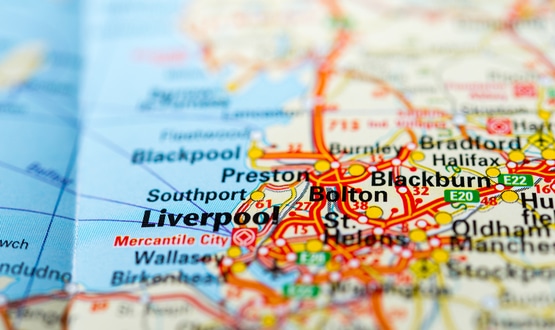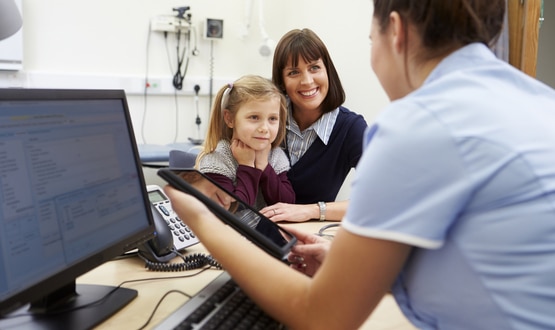MP Margot James hears how 5G tech is transforming care in Liverpool

Minister for digital and culture Margot James visited Liverpool to see how 5G technology is helping to improve the delivery of health and social care.
During the 7 February visit, the minister met with 73-year-old Catherine Miller, who has epilepsy, and her partner 57-year-old Kenneth Farrag, who takes medication for diabetes.
The couple both have a mild learning disability and are living semi-independently in their own home, run by Community Integrated Care in Kensington.
Catherine and Kenneth are taking part in a new 5G pilot, run by Liverpool 5G Health and Social Care, which includes a Safehouse Sensor installed in their home to detect falls, changes in temperature and unusual behaviour patterns.
The couple are also trialling the PAMAN device which provides a video link to a local pharmacy, which helps Kenneth take his diabetes medication safely.
Margot James said: “5G has the potential to revolutionise every aspect of our lives, from increasing productivity to improving quality of life.
“Our successful Liverpool testbed is key to delivering this progress, exploring how we can harness the power of 5G connectivity to transform health and social care.”
Liverpool 5G Health and Social Care is the first 5G supported health trial of its kind in Europe and was given £3.5 million by the government as part of the government’s 5G strategy to investigate the potential for the technology to improve health and care benefits in digitally deprived areas.
Eleven new technologies are being supported by 5G as part of the pilot, in Kensington and at the Royal Liverpool and Broadgreen University Hospitals NHS Trust.
They include two new loneliness apps ‘Push to Talk’ that links older people up for a chat and a loneliness quizzing app, which is being used by people with a learning disability at Kensington Community Learning Centre.
5G supported virtual reality headsets are also being used at the hospital for pain distraction therapy.
Vulnerable older people in Kensington are using a device that detects dehydration.
5G technology was chosen to support these health technologies because it is faster, more reliable and can transfer more data than existing options.
The wireless network Liverpool 5G is using has been designed by Bristol based company Blu Wireless.




